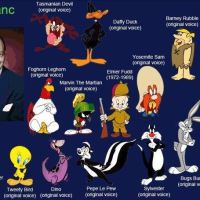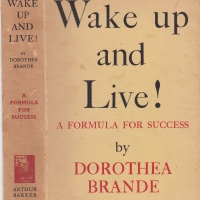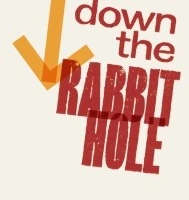Concluding my list of the fifty greatest British Cult Movies with my top ten of the most groundbreaking, mind expanding or just plain weird films. If I have left out, or down graded, your personal favourite feel free to comment or, better still, make your own list.
10. TRAINSPOTTING Danny Boyle (1996)
 Irvine Welch’s superb novel was in sure hands for the transition to the big screen There’s a first rate cast which Boyle directs with real energy and dark humour to show the ups and downs of heroin addiction. Great music too, including Iggy’s Lust For Life and Underworld’s Born Slippy. The screenplay by John Hodge begins with one of the great ‘fuck the system’ monologues:
Irvine Welch’s superb novel was in sure hands for the transition to the big screen There’s a first rate cast which Boyle directs with real energy and dark humour to show the ups and downs of heroin addiction. Great music too, including Iggy’s Lust For Life and Underworld’s Born Slippy. The screenplay by John Hodge begins with one of the great ‘fuck the system’ monologues:
“Choose Life. Choose a job. Choose a career. Choose a family. Choose a fucking big television, choose washing machines, cars, compact disc players and electrical tin openers. Choose good health, low cholesterol, and dental insurance. Choose fixed interest mortage repayments. Choose a starter home. Choose your friends. Choose leisurewear and matching luggage. Choose a three-piece suite on hire purchase in a range of fucking fabrics. Choose DIY and wondering who the fuck you are on a Sunday morning. Choose sitting on that couch watching mind-numbing, spirit-crushing game shows, stuffing fucking junk food into your mouth. Choose rotting away at the end of it all, pishing your last in a miserable home, nothing more than an embarrassment to the selfish, fucked up brats you spawned to replace yourself. Choose your future. Choose life”.
9. JUBILEE Derek Jarman (1977)
 Made before the first wave of British punk had played itself out this movie is, like the music that inspired it, crude and anarchic. Don’t even begin to look for any plot as this is impressionistic, instinctive cinema that sets its own rules. Adam Ant appears before he became a dandy highwayman and Jordan as punk ‘anti-historian’ Amyl Nitrite.
Made before the first wave of British punk had played itself out this movie is, like the music that inspired it, crude and anarchic. Don’t even begin to look for any plot as this is impressionistic, instinctive cinema that sets its own rules. Adam Ant appears before he became a dandy highwayman and Jordan as punk ‘anti-historian’ Amyl Nitrite.
8. THE SERVANT Joseph Losey (1963)

Joseph Losey is an American who moved to Britain after being blacklisted during the McCarthy era. His personal experience would have taught him about the corrupting influence of power and makes him an ideal choice to bring Harold Pinter’s chilling psychological thriller to the screen. The roles of master and servant, (played by James Fox and Dirk Bogarde respectively) slowly change to subvert the conventional wisdom that the lower orders should know their place.
7. THE DEVILS Ken Russell (1971)

Ken Russell’s capacity for self indulgence knows no bounds and The Devils is the most notorious example of this. At some time or another it has been banned or heavily censored pretty well everywhere because of its relentless depiction of sado-masochistic sex, ritual torture, primitive health treatment (with leeches) and religious obsession. Not a movie you want to watch on a full stomach but beautifully disturbing all the same.
6. IF… Lindsay Anderson (1968)
 British Peer, Lord Brabourne described this movie as “ evil , perverted” and “an insult to the nation” which must have pleased Lindsay Anderson no end. ‘If …’ quite literally has such pillars of the establishment in its sights through a surreal fantasy which imagines the ’68 Paris riots leading to a similar uprising in an English public school. Malcolm McDowell, in his first screen role, is Mick Travis the rebellious ring leader of the revolting students. This character also appeared in Anderson’s equally provocative O Lucky Man! and Britannia Hospital.
British Peer, Lord Brabourne described this movie as “ evil , perverted” and “an insult to the nation” which must have pleased Lindsay Anderson no end. ‘If …’ quite literally has such pillars of the establishment in its sights through a surreal fantasy which imagines the ’68 Paris riots leading to a similar uprising in an English public school. Malcolm McDowell, in his first screen role, is Mick Travis the rebellious ring leader of the revolting students. This character also appeared in Anderson’s equally provocative O Lucky Man! and Britannia Hospital.
5. A CLOCKWORK ORANGE Stanley Kubrick (1971)

Malcolm McDowell’s performance in If… brought him to the attention of Stanley Kubrick and he is cast as Alex DeLarge for the movie version of Anthony Burgess’ novel. Kubrick lived in England for the last four decades which explains why is often mistakenly described as an English director despite being born in Manhattan. The controversy surrounding this movie must have made him want to flee his adoptive homeland. His striking use of stylised violence meant that the later scenes of aversion therapy were largely overlooked and led to the movie being blamed for inciting hoodlums into copycat crimes. The media furoré eventually resulted in Kubrick withdrawing the movie in 1973 and it was not re-released in the UK until 2000, one year after Kubrick’s death.
4. PEEPING TOM Michael Powell (1960)

All cinema is,by its very nature, voyeuristic. Discuss.
Peeping Tom explores the question of whether we should accept screen violence as ‘entertainment’. It is the story of a serial killer who films his victims (all women) at the moment of their death with the help of a blade attached to his movie camera. This highly disturbing movie was widely pilloried on release as the sick and depraved product of a warped mind. It effectively destroyed Powell’s career in Britain although thanks to endorsements by the likes of Martin Scorsese it is now heralded as a masterpiece. Still, it’s no one’s idea of a date movie!
3. WITHNAIL AND I Bruce Robinson (1986)

Set in 1969, this is a brilliant character study of two actors who have fallen on hard times. They take an ill conceived trip to the country to escape their dismal and freezing London flat. “We’ve gone on holiday by mistake” Withnail explains to one of the yokels.This is just one of the many memorable lines that make this such a highly quotable movie. Richard E.Grant is nothing short of sensational as the desperate thespian Withnail with a mind boggling capacity for alcohol. Paul McGann is perfect as ‘straight guy’ Marwood (‘I’). This movie is a national treasure.
2. PERFORMANCE Nicolas Roeg / Donald Cammell (1970)

What happens when two unconventional lifestyles collide? James Fox plays a gangster (Chas) on the run. He seeks refuge under a new identity as Johnny Dean in a bohemian flat where he encounters the enigmatic Turner (Mick Jagger). Fortunately, Jagger is not called upon to act, he just has to look like the decadent rock star he was before the sponsorship deals started flooding in. At one point Chas says prophetically “You’ll look funny when you’re fifty”. Sex and drugs prove effective ice breakers but the identities of these two characters get more and more blurred. What starts as a straight looking crime movie becomes an intriguing psychological drama and very nearly the best British cult movie.
But the winner is………………
1. THE WICKER MAN Robin Hardy (1973)

This bizarre and astonishing movie is often billed as a horror flick but it is actually a one-off that defies such glib pigeon-holing. Edward Woodward plays God-fearing Sergeant Howie who travels to the remote (and fictional) Scottish island of Summerisle looking for a missing girl. He soon finds himself immersed in a secretive pagan society and is shocked to see sex magic being taught in primary school and the open practice of naked fertility rites. The community is presided over by Lord Summerisle (Christopher Lee) who defends the alternative lifestyle of the islanders: “they do not lie awake at night and weep for their sins“. The policeman’s desperate attempts to impart some solid Christian morality falls on deaf ears and he quickly realises he has been tricked into coming to the island to serve as a sacrifice to the new God (the Wicker Man) to ensure a plentiful harvest the next year – “Don’t you see that killing me is not going to bring back your apples?” he yells impotently as the flames rise.
The Wicker Man is a timeless cinematic treat and ,thanks largely to Paul Giovanni’s evocative songs, it has also been hugely influential as part of Britain’s ‘visionary music’ (see Rob Young’s Electric Eden). The misguided and unintentionally hilarious Hollywood remake starring Nicolas Cage only proved what a unique and quintessentially British movie this is.








This list is just what I needed. I have only seen 3 from your top 10. Now I have to watch them all cause of you and your good taste.
I think I’ll start with Withnail and I.
Great list!
Thanks for the comment and compliment – Withnail & I is a very good place to start!
great list and trip down memory lane! I first saw If when I was 11 and will never forget it – along with Monty Python, these films made thinking differently and critically possible and I love them (well those I’ve seen – havent seen Performance coz I never could stomach Mick Jagger)
but what about Harold and Maude? such a classic 🙂
I’ve never seen Harold & Maude but it wouldn’t have made this list anyway as it’s American.
o of course sorry, I was carried away by the theme and forgot the national category! but I think you’d like H&M!
I was wondering whether the name had anything to do with Mr. Dylan’s riff outside the tobacconist (featured in No Direction Home), i.e. he says “I’m looking for a place that’s going to animal my soul, knit my return, bathe my foot and collect my dog…”.
Like I said – I just wondered.
Hi Anna,
The name of this blog has EVERYTHING to do with the Dylan rap! See the link above.
Martin
No Quadrophinia Martin?… surely!!!
Quadrophenia didn’t make my top ten but is number 32 – arguably a low position but the competetion is fierce. It’s a great movie, that’s for sure!
This is an absolutely fantastic list…. watching withnail & i years ago introduced me to this genre… since then i have always been on a look out for british cult classics… have watched only maybe half of the 50 mentioned… but the order of the best you have mentioned is so agreeable even for those….. you have an impeccable taste in cinema… would love to keep reading on more movie stuff from you… thank you so much for putting this in a perfect order.. going to strive to finish all 50 soon… !!!
Thanks for this positive feedback Kalyani – have fun working through the list!
Death at a Funeral should be here.
I presume you mean the UK original. I haven’t seen it although the trailer doesn’t inspire me much – looks like a light farce rather than a genuine cult movie. Recommendations are welcome but it would also be good if you could also say WHY the film should be on this list.
I just watched Wicker Man…good movie though did you realise you basically spoil the ending in your description of the film!
Sorry if I spoiled you full enjoyment of the movie, Brett. I suppose I assumed that the finale was fairly well known and the policeman’s fate seems inevitable from the outset. My bad.